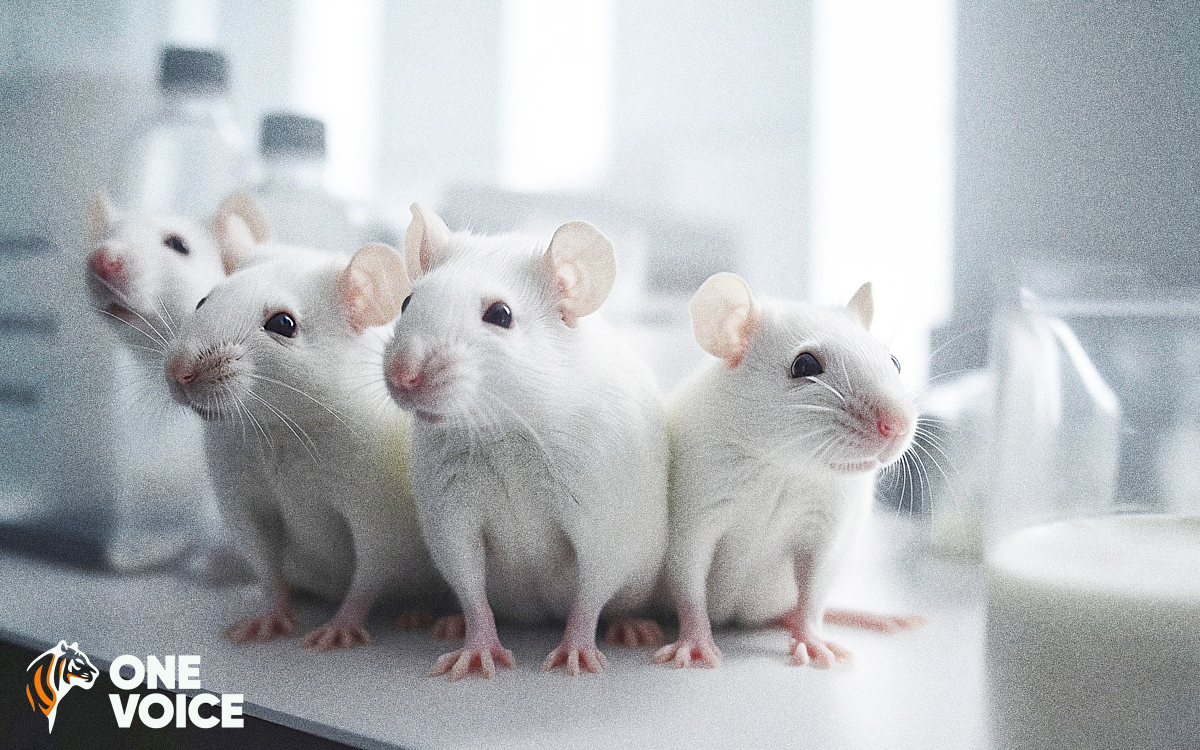

‘Ethics committees’ in animal testing: they are (slowly) starting to listen to us
After an initial more than mixed business report in 2021, around twenty Institutional Animal Care and Use Committees (IACUCs) had to stop their activities: they had not been following regulations for ten years. While the CNREEA [French National Consultative Ethics Committee] is examining the issue, an idea that we already mentioned last year is starting to be taken seriously. One Voice would like to join this national body in the interest of animals.
After the rather timid view of CNREEA given in April 2022 regarding the conditions for approval for ethics committees, we sent an open letter to the president of this organisation. Without much success. The note from the viewpoint of public ethics on this subject was, incidentally, not met with much more resonance.
Ten years of illegal operation
We are quite rightly worried, as shown by the IACUC’s business report published a few months later revealing major failures with regard to regulations. More than twenty committees have even had to stop their activities in 2023, given that they had not been, for ten years, following the conditions of independence and impartiality that are theoretically necessary for their approval.
In 2023, more than a third of those left were ‘mono-institutions’, meaning that they were created and directed by a single institution (a university or business, for example), where the majority of the members comprising it came from. This once again undermines the conditions for approval – especially as 80 to 90% of these people were directly involved in animal testing.
How many animals have suffered during illegal experiments authorised thanks to these committees? In fact, no IACUC was legally approved before winter 2022. A situation that did not concern the Ministry of Research until now, who put their seal on all of the projects and boasted of the merits of the “ethical” assessment to the media to reassure them, specifically regarding electric shocks and the forced swimming test.
Are they starting to listen to us?
Fortunately, the national Committee seems to be progressing. In its recent meeting minutes, they talk about the works of Laurent Bègue and there is a profound and interesting remark from Raphaël Larrère. He even concludes that there are valid reasons to think, given the mental wealth of the animals exploited by laboratories, that “there is more to think about than just their ability to suffer”. Therefore, those who want to defend animals are right in saying that the “ethics” practised in animal testing are “insufficient” …
Also a nice surprise: the CNREEA has been taking an interest in Independent Ethics Committees (IECs) since March, which are “often mentioned” (in particular by us). In fact, taking the example of these organisations (who assess research projects involving humans) would allow us to solve, in part, the lack of impartiality, independence, and competence of ethics committees in animal testing – which would undoubtedly avoid many animals’ suffering.
One Voice is applying
Even if the approach of putting an end to the use of animals by laboratories remains distant, this news is encouraging – as long as it is acted upon. It is with this perspective that One Voice applied to represent animals within the CNREEA at the start of the year.
The response from public powers is set to be before July 2024.
Translated from the French by Joely Justice